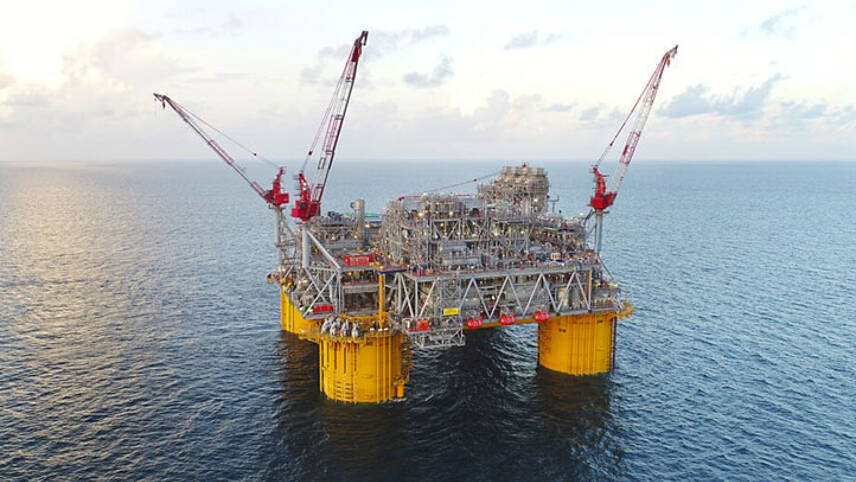Register for free and continue reading
Join our growing army of changemakers and get unlimited access to our premium content

Image: The Shell Appomattox deep-water asset, Gulf of Mexico. Image: Shell.
The analysis, conducted by Carbon Tracker, assessed 25 of the world’s largest listed oil and gas firms. All but one – Occidental Petroleum, based in Texas – incentivise executives to expand fossil fuel production.
Carbon Tracker has warned that this sends a conflicting message at companies that have set targets to cut production. For example, Eni and Repsol have both pledged to cut production by 30-35% this decade, but link more than one-fifth of their executive pay packages to KPIs that entail expanding production.
The analysis reveals a growing and worrying trend towards companies framing expanded gas production as a ‘low-carbon’ option in KPIs. This was found to be the case at firms including BP, ExxonMobil, Chevron and TotalEnergies.
The International Energy Agency (IEA) has repeatedly stated that transitioning the global energy system to net-zero by 2050 entails ending all upstream oil and gas projects with long lead times, beyond those already granted permission before 2021.
Moreover, even though current policy infrastructure and market trends are not aligned with this emissions reduction trajectory, the Agency is nonetheless expecting global oil demand to peak in 2028 and global gas demand to peak in 2030.
Carbon Tracker is warning that executives at oil and gas majors are ill-prepared to strategise around the accelerating pace of the energy transition. It is urging them to plan to decrease production over time and, if they do not do this voluntarily, for investors to exert pressure.
“The energy transition is accelerating, and oil and gas companies must plan for peaking demand for their product,” said Carbon Tracker’s lead for oil, gas and mining, Mike Coffin.
“Investors should be concerned executives are continued to be incentivised to grow production volumes and develop new long-cycle assets, particularly if this is contrary to stated company strategy. Asset owners and asset managers should use their votes accordingly to ensure that executives are acting in their best long-term interests.”
It bears noting that several of the 25 companies have decreased the proportion of executive pay linked to expanded production since 2020. TotalEnergies decreased this from 13% to 4%, for example, while the reduction at EQT was the steepest, from 30% to 3%.
The research from Carbon Tracker follows on from its study last month which concluded that oil and gas operators in the North Sea are likely to see a drop of at least 63% in aggregate cash flows from existing extraction and exploration assets by 2030, compared with their expectations.
Related news: Shell reduces renewable energy pipeline, raises shareholder payouts


Farmers, in the olden days, used to make hay whilst the sun shone.